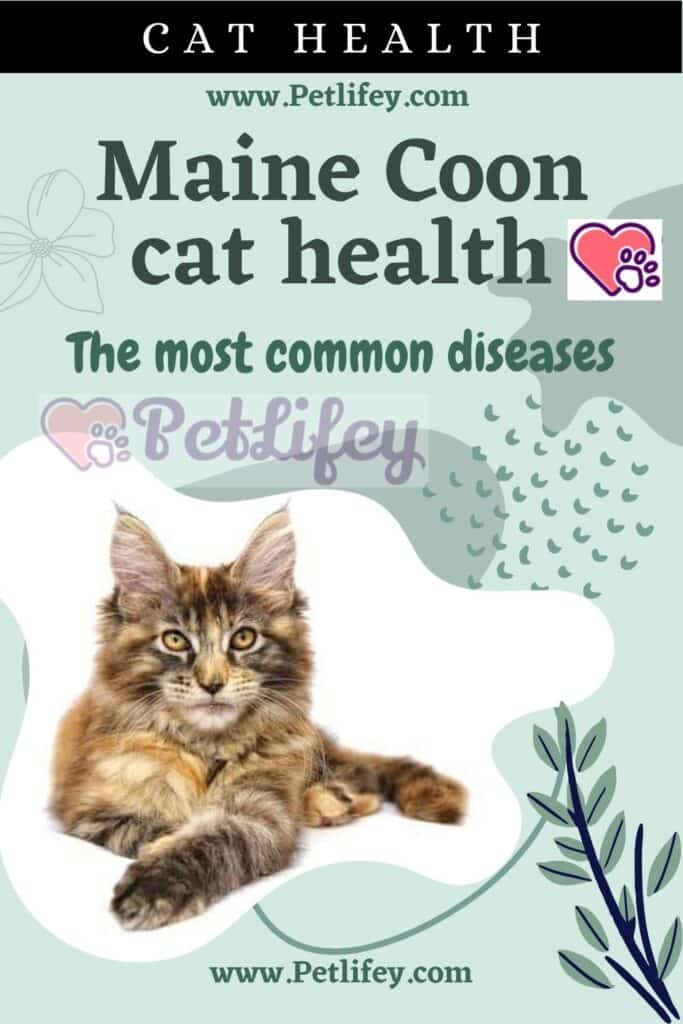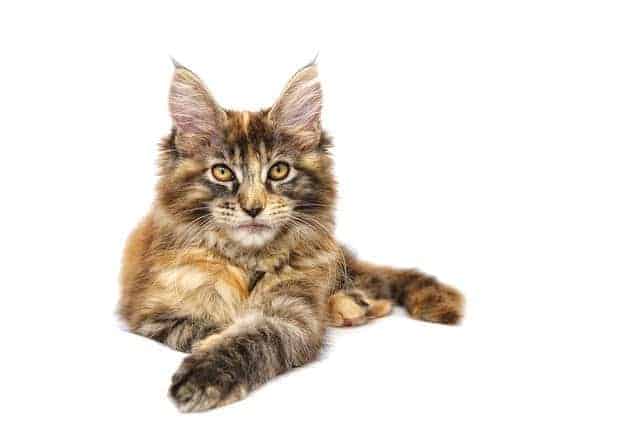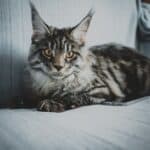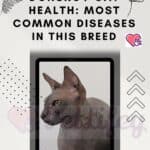
All about the health of the Maine Coon cat and the most common diseases that affect this feline- let’s find out together what they are.
Taking care of your four-legged friend means regularly monitoring its health, so as to ensure them a full and happy life. What are the most common diseases in the Maine cat? Let’s examine the most frequent pathologies in this breed and see how to detect them in a timely manner.
Common diseases in the Maine Coon

Maine Coons are felines that generally enjoy good health. There are, however, diseases to which they are most predisposed. Before adopting your four-legged friend, turn to a serious breeding.
In fact, it is extremely important to test parents for genetic pathologies. Let’s see what are the common diseases in the Maine Coon, how to recognize them and what treatments to subject the cat to.
Hypertrophic cardiomyopathy
Hypertrophic cardiomyopathy in cats is a disease of a hereditary nature, common in the Maine Coon. Such a pathology causes an increase in thickness of the left ventricle of the heart, making it less elastic and causing the heart murmur.
Due to the small size of the heart chamber, the pumped volume of blood decreases. This causes significant circulatory problems. Hypertrophic cardiomyopathy is manifested by the following symptoms:
- Malaise and weakness
- Depression
- Breathing difficulties
- Lack of appetite
This pathology can provoke heart attacks and thrombosis in the cat, up to the point of causing its death. To date, there is no diagnosis for this disease, but some medications can help reduce its symptoms.
Hip dysplasia
Hip dysplasia is a common disease in the Maine Coon. The cause of this pathology is an incorrect insertion of the head of the femur of the cat, inside the hip joint. This causes a progressive degeneration of cartilage.
Symptoms of hip dysplasia in cats are:
- Pain
- Decreased movement
- Difficulty walking
- Abnormal gait
In severe cases, the cat will have to undergo surgery.
Obesity
The Maine Coon is a breed of cat with a truly remarkable size: males can reach 11 kg, while females can reach 7 kg. Not only that: they are also extremely lazy and voracious cats.
This combination, unfortunately, makes them predisposed to obesity in the cat. In severe cases, these animals can reach a weight of up to 20 kg. For this, you will have to keep strictly under control the nutrition of your four-legged friend, especially in the event that he is sterilized.
Polycystic kidney disease
Polycystic kidney in cats is a genetic disorder that can affect one or both kidneys. On the surface of these organs and inside them, cysts begin to develop, which over time enlarge by altering kidney function.
Symptoms of this disease are similar to those of renal failure:
- Slimming
- Halitosis
- Increased thirst and urination
Unfortunately, to date there is no definitive cure for this pathology. The cat can only be subjected to palliative treatments, to mitigate the symptoms caused by the disease.






